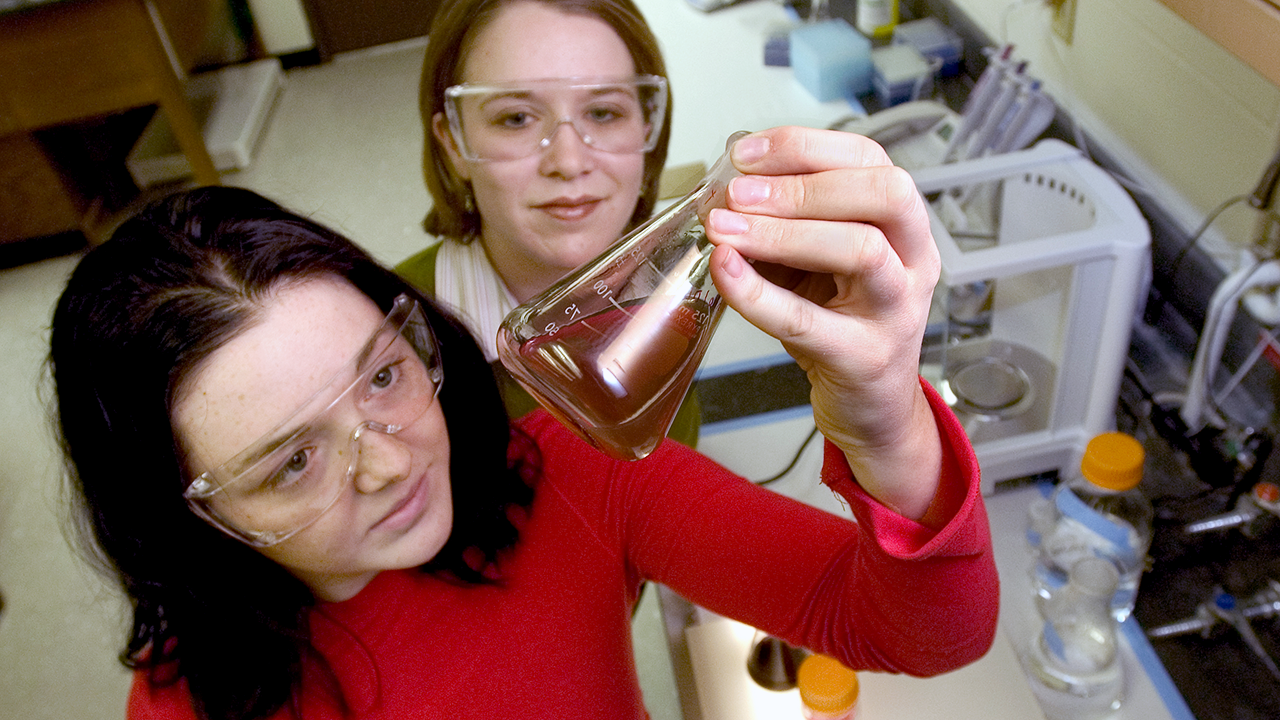
The University of Minnesota is home to many accomplished women scientists. Earlier this month, dozens of volunteers from the University community came together to help tell their stories.
Participants in the Women in STEM Wikithon, held in conjunction with International Women’s Day and Women’s History Month, created and improved the Wikipedia profiles of women scientists from the U of M. The effort was a collaboration between the College of Science and Engineering; College of Food, Agricultural, and Natural Resource Sciences; College of Biological Sciences (CBS); Biotechnology Institute; and Digital Arts, Sciences, and Humanities (DASH) Program at the University of Minnesota.
According to a recent Nature article, only about 18 percent of Wikipedia biographies written in English are about women. As the article notes, Wikipedia has become a platform for writing and editing history as it’s happening, so highlighting the work of women—whose contributions in science have traditionally been underrepresented—is important. A biography on Wikipedia can also give a scientist credibility, making it easier for journalists looking for sources to connect with that person’s expertise.
The idea for the Wikithon started with Cheryl Quinn, an alum of CBS and a member of the college’s campaign steering committee, who had taken part in a Wikithon at the Minneapolis Institute of Arts a few years ago. Quinn said recognition and visibility of women in science and engineering lags far behind that of men, even though women earned 42 percent of the Ph.D.s awarded in these fields in 2014, according to data from the National Science Foundation.
“I think it is important that people recognize STEM is not a male-dominated world,” she said. “As a society facing numerous technical problems, we cannot afford to overlook contributions of half the population. The U of M has a number of distinguished women scientists on faculty and recognizing some of these on Wikipedia is a simple step we can take to help address the imbalance.”
Among the profiles Quinn created as part of the event was that of Valery Forbes, Ph.D., dean of CBS and professor in the Department of Ecology, Evolution, and Behavior. Forbes’s STEM focus is studying the effects that environmental stressors, like toxic chemicals, have at all biological scales, from the molecular to whole ecosystems. Her work can help in understanding ecological risk and managing environmental concerns.
From Forbes’ point of view, there are many reasons to focus on building the visibility of women in STEM fields. Visibility is key for the development of an academic career, playing a large role when people are being nominated for prestigious awards, when their research is cited, or when they are being invited to give prominent keynote lectures.
While younger generations are starting to show a balance between men and women in STEM professions (especially in the life sciences), Forbes said challenges remain for women in these fields. There are subtle biases at play in the way decisions are made in areas such as hiring and promotion that need to be addressed—and, in some cases, both men and women are perpetuating them.
“The first step is making people aware of these biases,” she said.
Another important angle is ensuring the younger generations of women have role models to inspire them. This is something Forbes thinks about in her college as well as across STEM fields on the whole.
“The incoming freshman class at CBS is 60 percent female,” she said. “I think it’s important they can see themselves as scientists.”
While the Wikithon successfully contributed about 10,000 words to Wikipedia profiles of women scientists at the U, Forbes said, we’re not finished yet. CBS is also focusing on ensuring accomplished female faculty are nominated for prestigious awards and represented in visits or presentations to audiences outside the University.
CBS’s SciSpark 2019, for example, will celebrate U of M women in science with an evening of five-minute “lightning talks.” The talks span women from all points in their academic careers, from graduate students and post-doctoral researchers to early- and late-career faculty. Forbes hopes that the event can inspire young people, especially young women, and demonstrate that pursuing a career in science is both very rewarding and very achievable.